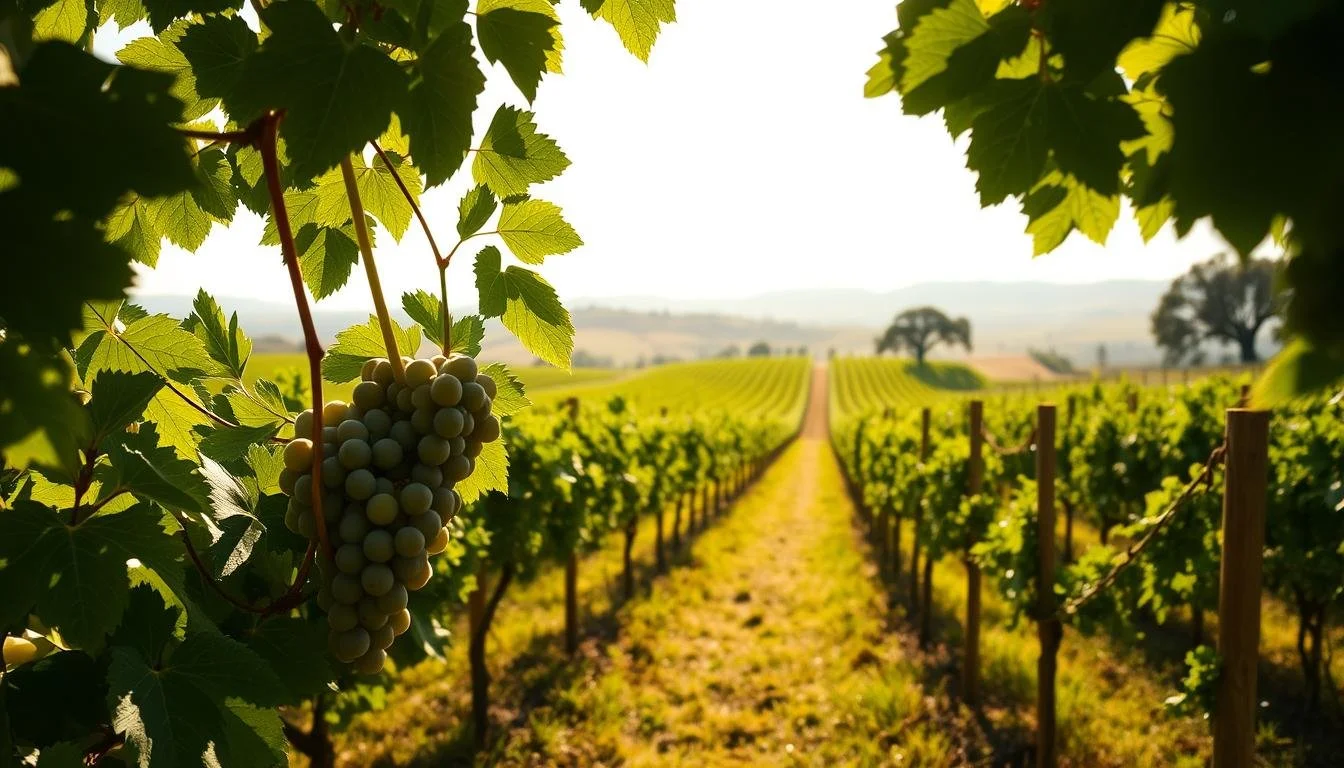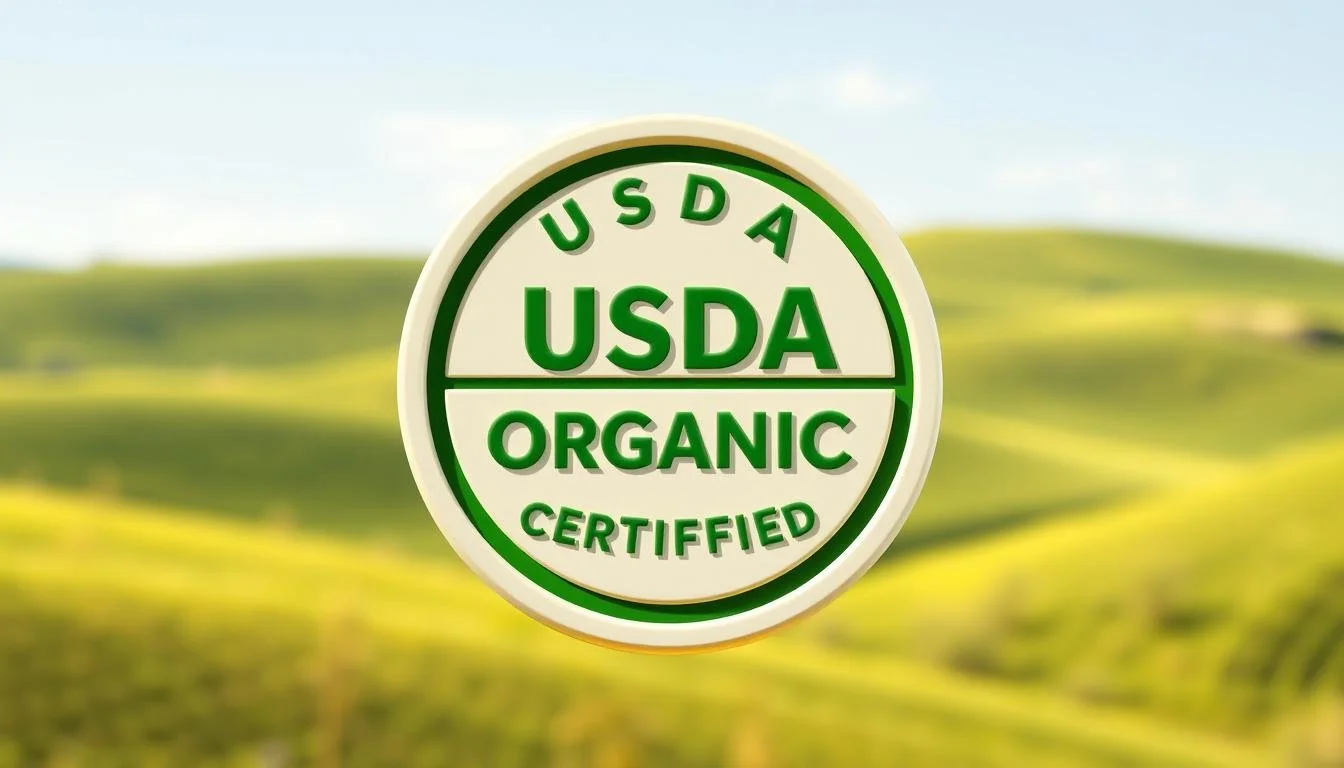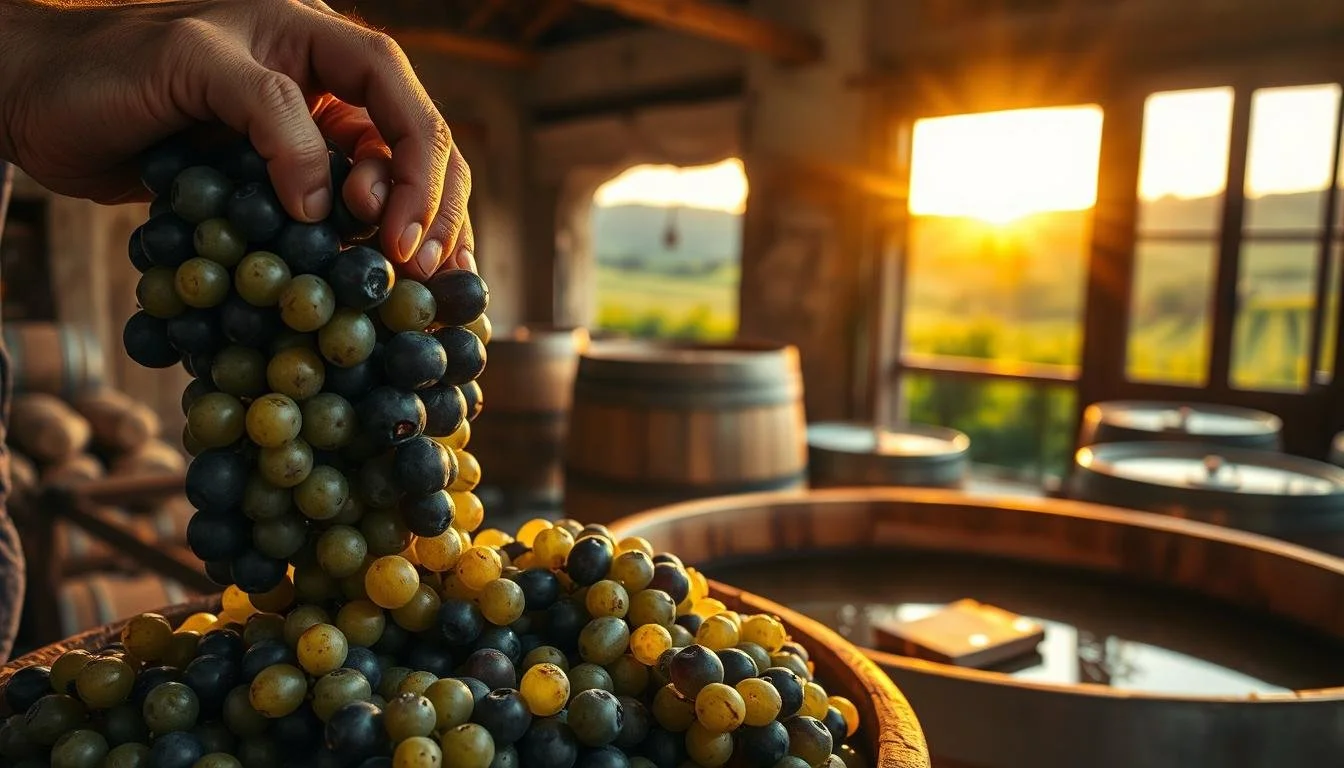What Makes a Wine Organic?
What Makes a Wine Organic?
More people are interested in organic wine because they care about the environment and their health. So, what makes an organic wine different from regular wine?
Organic wines come from organically grown grapes. These grapes are grown in vineyards that follow organic farming methods. This means no harmful chemicals like pesticides or fertilizers are used.
Making organic wine means using methods that are good for the planet. It makes a healthier wine and helps the vineyard ecosystem thrive.
What Makes a Wine Organic: Key Criteria and Standards
The journey to organic wine starts in the vineyard. Here, sustainable practices and strict standards are key. Organic wine production is a detailed process, from growing grapes to the final product.
Organic Vineyard Management
Organic vineyard management is central to organic wine production. It focuses on practices that are good for the land and result in healthier grapes.
No Synthetic Fertilizers, Pesticides, or Herbicides
Organic farming avoids synthetic fertilizers, pesticides, and herbicides. Instead, organic vineyards use natural methods to control pests and diseases. This includes introducing beneficial insects or using organic fungicides. It helps keep the soil healthy and promotes biodiversity.
Sustainable Farming Practices
Sustainable farming is key in organic vineyard management. It includes crop rotation, composting, and maintaining ecological balance. These methods produce high-quality grapes and help the environment.
USDA Organic Certification Process
The USDA Organic Certification is vital for wines to be labeled as organic. This involves inspections and following the National Organic Program (NOP) standards.
"Made with Organic Grapes" vs. "Organic Wine" Labels
"Made with Organic Grapes" and "Organic Wine" labels differ. The latter means the wine is made from organic grapes and processed organically, meeting stricter standards.
European vs. American Organic Standards
European and American organic standards aim to promote organic farming. Yet, they differ in their approach. The European Union's rules are often stricter, focusing more on environmental sustainability.
It's important for consumers and producers to understand these differences. They impact how organic wines are labeled and marketed in different areas.
The Winemaking Process: From Organic Grapes to Bottle
From the vineyard to the bottle, making organic wine is both an art and a science. It requires careful steps to ensure the wine is of high quality and meets organic standards.
Permitted Additives and Sulfite Restrictions
In organic winemaking, additives are strictly controlled. The goal is to keep the wine's natural character intact.
Sulfur Dioxide Limits (100 Parts Per Million)
Organic wines can have up to 100 ppm of sulfur dioxide. This is a key rule to keep the wine organic and safe to drink.
Sulfur dioxide helps preserve the wine and protect it from oxidation. But, its use is monitored to avoid harming the wine's quality or health.
Natural Yeasts and Fermentation
Organic wines often use natural yeasts for fermentation. This method adds to the wine's complexity and flavor.
Differences Between Organic, Biodynamic, and Natural Wines
Organic wines avoid synthetic chemicals. Biodynamic and natural wines go further, focusing on the vineyard's ecosystem and lunar cycles.
Biodynamic Winemaking Principles
Biodynamic winemaking follows Rudolf Steiner's holistic approach. It includes composting, herbal preparations, and astrological influences.
"Biodynamic farming is not just about avoiding chemicals; it's about creating a living, vibrant farm ecosystem."
Rudolf Steiner
Natural Wine Movement
The natural wine movement aims for minimal intervention. Natural wines often have little to no added sulfites and use indigenous yeasts.
Knowing these differences helps consumers choose wines that fit their taste and values.
Conclusion: Benefits of Choosing Organic Wines
Choosing organic wines is a smart move. It makes your wine-drinking experience better and supports a healthy lifestyle. Organic wines are made without synthetic chemicals, making them a healthier option.
Organic winemakers focus on sustainable practices. They use organic vineyard management to create high-quality wines. These wines are not only better for you but also for the environment.
Vegan wines are often organic. They appeal to those who prefer plant-based products. By choosing organic wines, you support eco-friendly practices and enjoy better wine quality.
The demand for organic products keeps growing. Organic wine offers many benefits, like healthier ingredients and sustainable production. It's a great choice for those looking for a natural and responsible drinking experience.
FAQ
What is the difference between "Made with Organic Grapes" and "Organic Wine" labels?
"Made with Organic Grapes" means the wine comes from grapes grown without harmful chemicals. But, it might have some non-organic stuff in it. On the other hand, "Organic Wine" is made from 100% organic grapes. It follows strict rules to make sure it's organic.
Are sulfites allowed in organic wine?
Yes, sulfites are okay in organic wine, but only in small amounts. They're a natural preservative.
What is biodynamic winemaking, and how does it differ from organic winemaking?
Biodynamic winemaking sees the vineyard as a whole ecosystem. It uses a lunar calendar for planting and harvesting. It's like organic winemaking but focuses more on the spiritual and cosmic sides of farming.
Can organic wine be vegan?
Yes, many organic wines are vegan because they don't use animal products. But, always check the label or ask the winemaker to be sure.
How do European and American organic standards differ?
Both places have strict rules for organic wine. But, the US lets in some non-organic stuff in "Made with Organic Grapes" wines. The EU is stricter.
What is natural wine, and is it the same as organic wine?
Natural wine means making wine with little to no help from humans. It uses natural yeasts and few additives. Not all organic wines are natural, but some natural wines are organic.
Are organic wines of higher quality than non-organic wines?
Quality is up to personal taste. Both organic and non-organic wines can be great. Organic wines are made without synthetic chemicals, which might attract some people.
Can I trust that a wine labeled as "organic" is truly organic?
Yes, if it has USDA Organic or EU Organic on the label. These labels mean the wine meets strict organic standards. They ensure the wine is made from organic grapes and follows organic winemaking rules.



